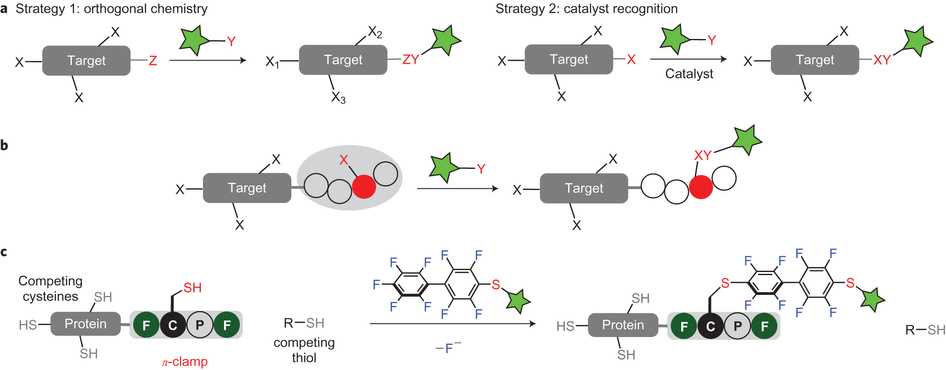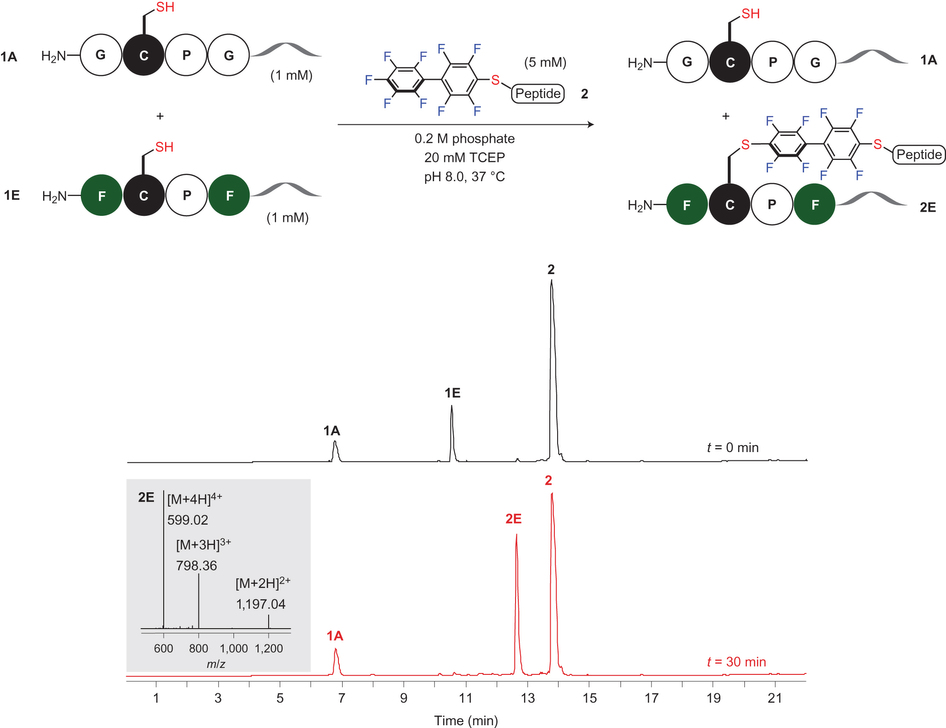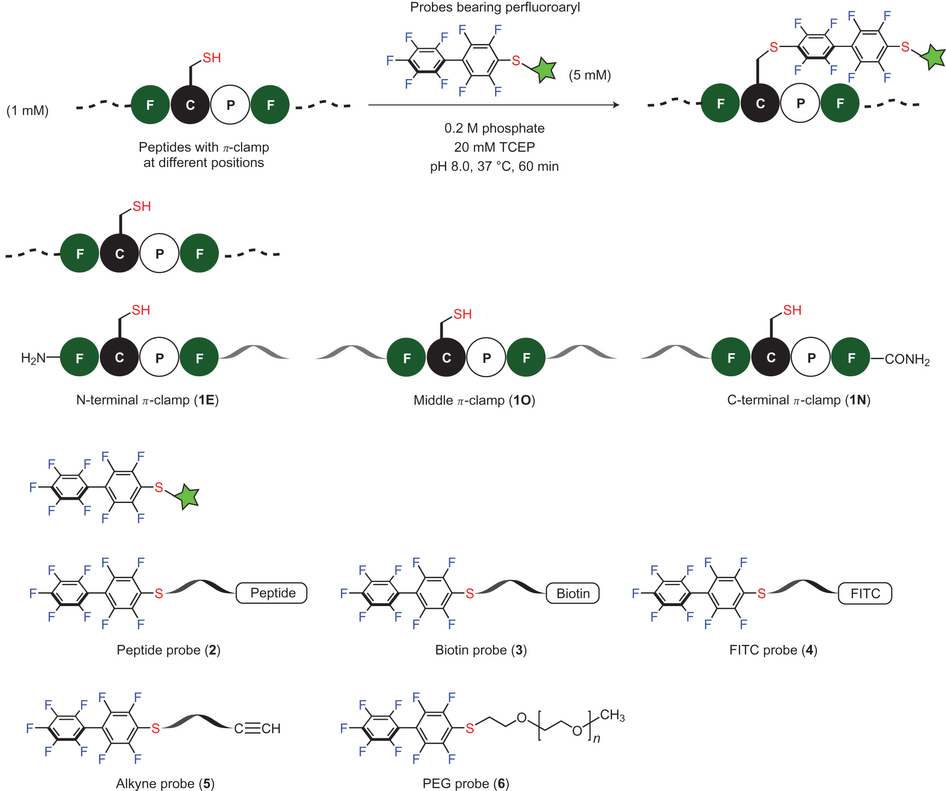
π-Clamp-mediated cysteine conjugation



π-Clamp-mediated cysteine conjugation
Published 21 December 2015
Chi Zhang, Matthew Welborn, Tianyu Zhu, Nicole J. Yang, Michael S. Santos, Troy Van Voorhis & Bradley L. Pentelute
Abstract
Site-selective functionalization of complex molecules is one of the most significant challenges in chemistry. Typically, protecting groups or catalysts must be used to enable the selective modification of one site among many that are similarly reactive, and general strategies that selectively tune the local chemical environment around a target site are rare. Here, we show a four-amino-acid sequence (Phe-Cys-Pro-Phe), which we call the ‘π-clamp’, that tunes the reactivity of its cysteine thiol for site-selective conjugation with perfluoroaromatic reagents. We use the π-clamp to selectively modify one cysteine site in proteins containing multiple endogenous cysteine residues. These examples include antibodies and cysteine-based enzymes that would be difficult to modify selectively using standard cysteine-based methods. Antibodies modified using the π-clamp retained binding affinity to their targets, enabling the synthesis of site-specific antibody–drug conjugates for selective killing of HER2-positive breast cancer cells. The π-clamp is an unexpected approach to mediate site-selective chemistry and provides new avenues to modify biomolecules for research and therapeutics.



